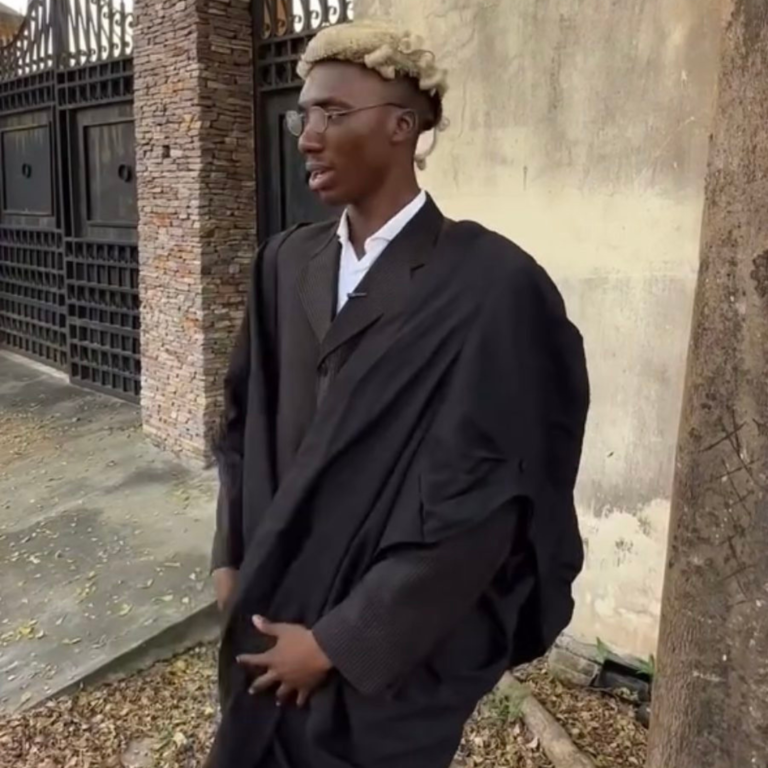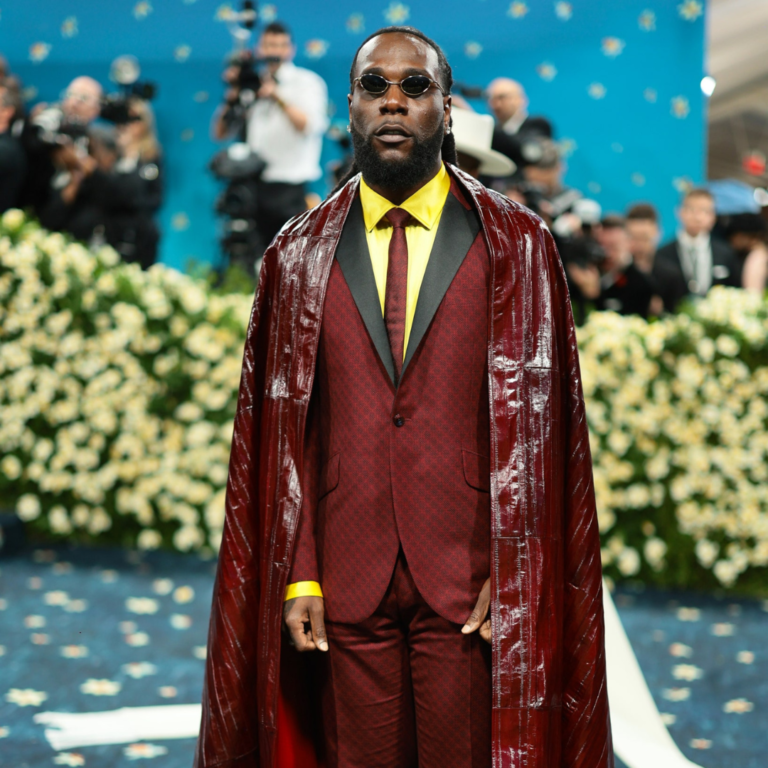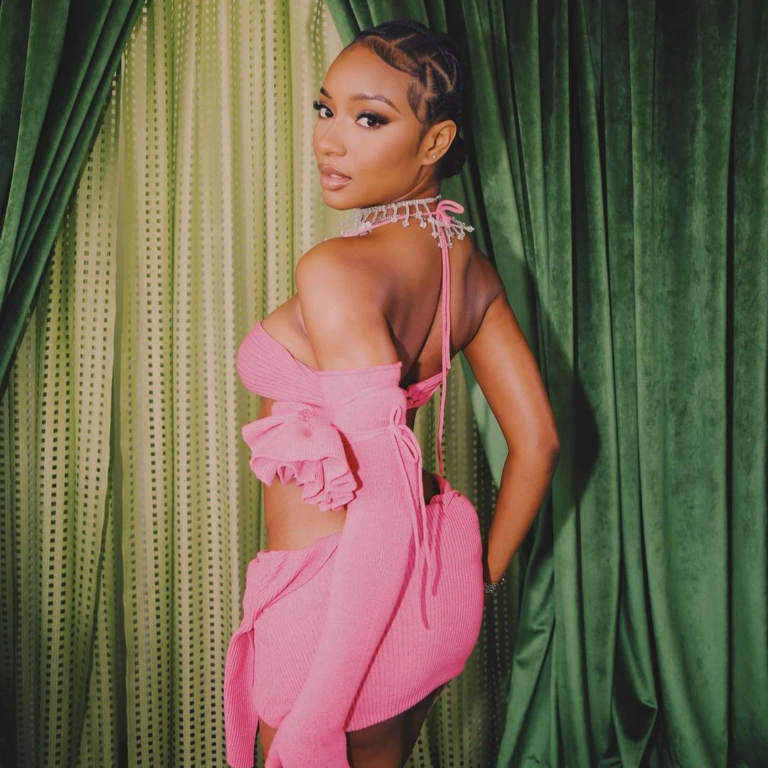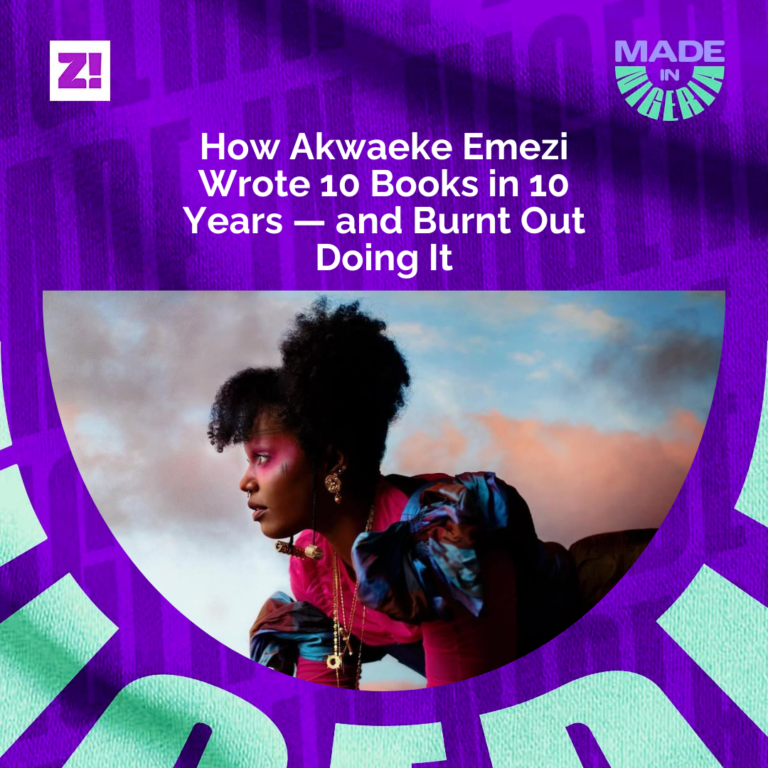Akinola Davies Jr. will be the first to admit it — he was late to the party.
After working shifts at call centres and bars in the UK, he started assisting photographers, artists, and filmmakers at the age of 26. Starting late meant there was a lot of catching up to do. So, he became indispensable. He made himself reliable. He worked hard.
In the beginning, he shared the work he helped make on his blog. But one of the creatives he was assisting saw the site and pulled him aside: “These aren’t your images,” they said. It was a turning point. From that moment on, Davies committed to making his own work. First came the opportunity to direct a music video, then more followed.
Then came the pandemic — and with it, Lizard. A short film he directed, inspired by his childhood in Nigeria, Lizard was released in 2020 and quickly made waves. In 2021, it won the Grand Jury Prize for Short Film at the Sundance Film Festival, launching Davies into the global spotlight. That same year, it was nominated for the Best British Short Film at the British Academy of Film and Television Arts (BAFTA) Awards.
Now, his first feature film, My Father’s Shadow, written by his elder brother, Wale Davies (one half of the rap duo Show Dem Camp), is one of the Cannes Film Festival’s Un Certain Regard official selections, the first for a Nigerian film at the festival. It follows two sons who spend a day with their estranged father as Nigeria conducts its first democratic election after years of military rule in 1993. Sope Dirisu, the British-Nigerian actor famous for Gangs of London, plays the lead.
In this week’s #MadeinNigeria, he opens up his secret for making successful arthouse films, why he calls himself a Nollywood filmmaker and what being selected for Cannes means for the future of Nigerian films.
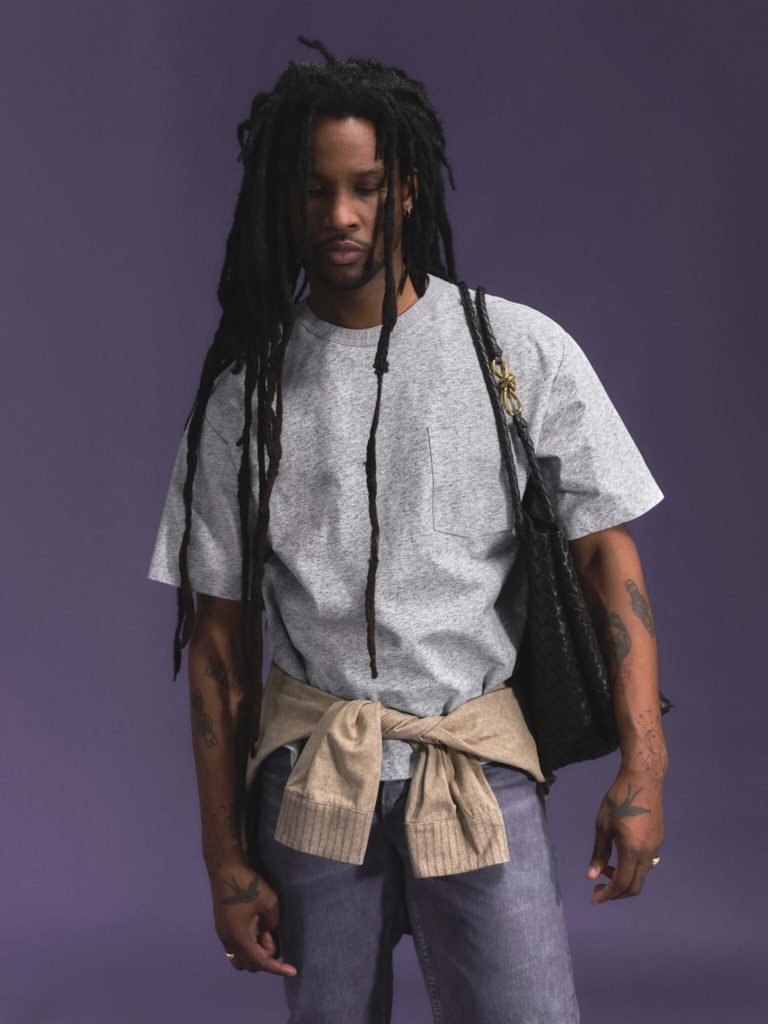
This interview has been edited for clarity and length.
Why did you decide to make My Father’s Shadow?
The genesis of how it came together was that my brother and I made a short film called Lizard in 2020, just before the pandemic. We were in lockdown when it went to Sundance, and it ended up winning an award. We knew we had a good film, but we didn’t know how well it would do.
When the time came to choose a feature-length project, I decided it had to be quite meaningful because I always approach things like they’re the last thing I’ll make. I want to create things with a sense of urgency. My brother Wale had already written it as a short story, which eventually became the feature-length script—In My Father’s Shadow—about two boys spending the day with their estranged father.
We were unfortunate enough to lose our father quite early on. I was 20 months old, just shy of my second birthday, and Wale must have been four or five. It was this question that resonated with us: like, if we could spend a day with him, what would that entail? What would that relationship be like? How would we respond to him?
So a lot of our interests—even similar to Lizard—come from the psychology of what it is to be a Nigerian child, or even just an African child. A lot of the things that are maybe a bit more permissible in Europe or America—in terms of psychology, or how children are treated, or dealing with trauma or grief, or even just being on the spectrum, or having special needs—are things that I’m quite obsessed with, and my brother has an interest in too.
A lot of the work we think of or hope to make is just to be in service to our community.
When did you start to think of yourself as a storyteller?
Not till fairly recently—somewhere in the last nine years. I used to assist documentary and fashion photographers, some filmmakers too. I was like a camera operator, assistant producer, or doing production design, even helping out with the costume team. So I wasn’t necessarily anticipating that I’d become a director. I just wanted to work in film, but not necessarily in a role I was familiar with.
I guess from working with those creatives—watching their process, understanding what they do, what it’s like to be on set, speaking to clients, coming up with ideas, being collaborative—I just saw that, yeah, I can do this. I’m Nigerian, and part of our fabric is to be sociable. To engage with people and just be really communicative.
After a while, with the main people I used to assist, my voice started to grow louder. I became more vocal about what I thought we should be doing creatively. And I think, at that point, they just got fed up with this kid always trying to tell everybody what they should do. So they kind of encouraged me to go and try to make some stuff of my own.
I would put the work I’d made with them on my blog at the time. And I remember one of them seeing it and saying, “Realistically, that’s not your work. You were definitely part of the production, and you get a credit, but it’s a bit disingenuous to be putting that on your blog or website as your own. You should make your own stuff, and that way you can stand by it.”
That was around 2015, 2016, and that was when I realised I had the means to tell stories. I made a video for a Nigerian artist based in the UK at the time. I made her a sort of music video-type film, and from then on I just started getting more and more recommendations. The backend of creating that bit of work helped me realise that this is something I can actually do. And the way I pulled people together to make it happen made me say, yeah, I could probably be a director.
I didn’t start doing anything film-related until I was like 26. I used to work in service, in bars. I worked in retail, call centres—just trying to make ends meet. I didn’t start my journey assisting until I was 26, at which point I already assumed I was pretty late to the game.
I was very focused. Whenever I’d assist someone, I’d end up becoming their main assistant because I knew I was late to the party. I was just really diligent about the work, and I made sure I was dependable. I didn’t really make excuses. Whatever they needed, I’d move hell or high water to be there.
How did you receive the comment from that person that you shouldn’t put their work on your blog?
At the time, I was a bit shocked because I obviously knew I was involved in those productions. That particular person—I mean, we didn’t really delegate roles as such, but he definitely came up with the idea. He was definitely the director. He edited it. I was just more like his assistant, just kind of helping him out. So I thought it was fine to put all those things on my website.
He said it in the nicest way possible, but he was just kind of like, “It’s really my work. Because if people see it and they don’t go and read the details of what it is, they might just assume it’s yours. So it’s a bit disingenuous.”
And I get it. I understand how people should be credited for their work. I agreed with him. But obviously, it pained me a bit—because I was like, if I remove all this stuff from my site, I’m not gonna have anything there. So like, 100%, it hurt my ego.
But it motivated me to go and make my own work. Because it’s very easy to hide behind somebody else’s work and say it’s yours, even though you’re a collaborator. But ultimately, the person coming up with the work, putting themselves out there, coming up with the creative—that’s really the owner.
It wasn’t my favourite conversation. But it helped in the end.
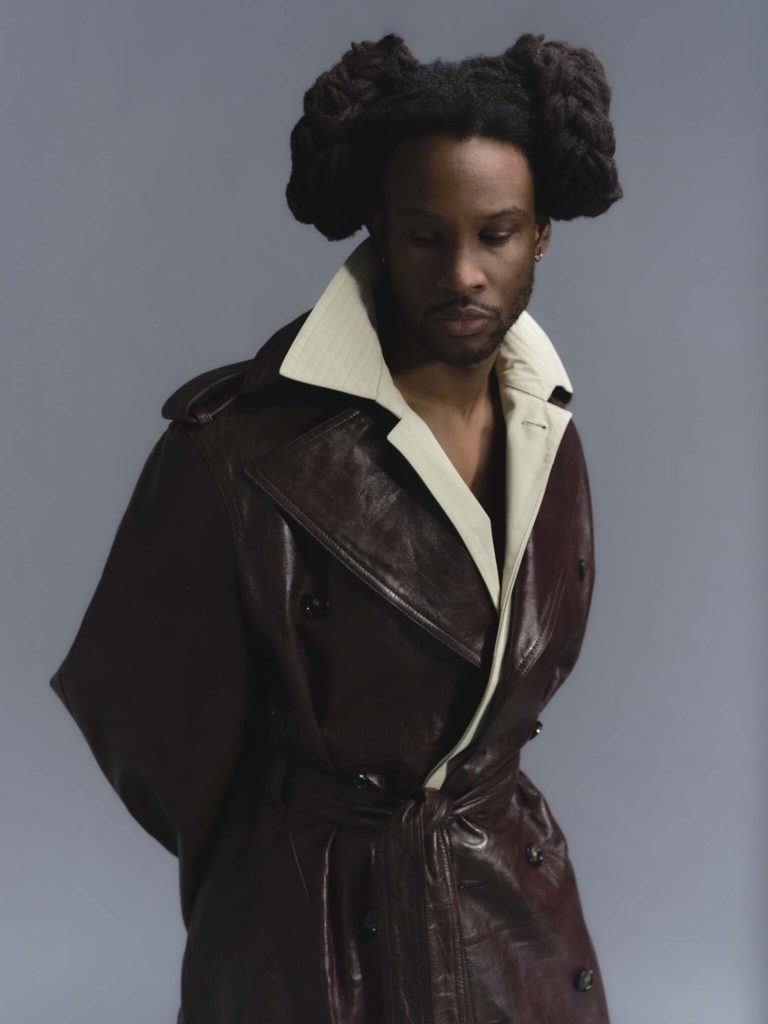
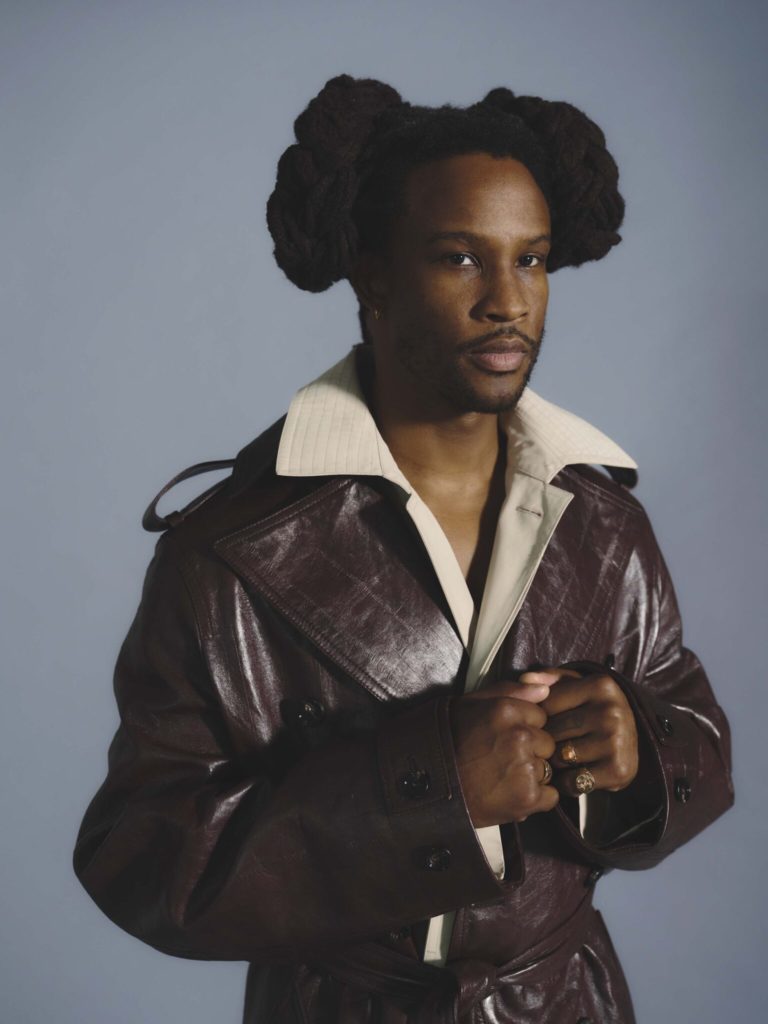
What’s In My Father’s Shadow about?
I can’t tell you what it’s about because it’s not out yet. But it’s ultimately about two young boys who spend a day with their father. He takes them on a day trip to Lagos, and they witness him dealing with life, trying to navigate things as an adult in that moment in time. There’s the aftermath of an election, and he has to get them back home.
It’s a story about nationhood, fatherhood, grief, and promises that were never delivered on. But it’s also about motherhood—because the way our fathers are positioned in our lives often comes from the commitment and steadfastness of our mothers.
It’s just a family film.
How does this film interrogate the father-son dynamic?
Ultimately, we just wanted to try and create the most honest portrayal of what it means to be a Nigerian man, especially in this period of time. Obviously, our character is this father figure, but we’re not trying to paint a perfect image of him. I don’t think anyone is perfect.
You grow up as a kid thinking your parents have all the answers, but realistically, they’re just kids who’ve grown up as well. They make a lot of mistakes. They’re insecure. They don’t necessarily have all the answers. They’re also a product of their parents—their nurture determines how they nurture you, and how you’ll nurture your own children. All those things are connected.
I think being human is complex. Being Nigerian is even more complex. We’re not necessarily trying to glorify fatherhood—we’re just trying to give the audience an honest portrayal of a character within a story. It’s semi-autobiographical, but there’s a lot of creative license there. It’s not a like-for-like depiction of my father.
Being a man, especially coming from a traditional patriarchal society, might seem one-dimensional, but there are multiple dimensions to it. Even though Nigeria is quite patriarchal, my mother ran the household. At every gathering I went to, my aunt ran the household. The male presence was kind of authoritative, but also just in the background. I just hope that my film encompasses all of that.
ALSO READ: CJ Obasi on What he Really Thinks of Nollywood
What does it mean to be a man in the ’90s?
I can try to describe it within the context of the film. In 1993, Nigeria was in the throes of one of its first democratic elections at that point in time. And I think there was a lot of excitement—people who loved their country probably thought this was going to be the catalyst for real change.
In the context of our film, it’s just a working-class man trying to do the best for his family, but also anticipating that change will come—that it will provide him with the kind of infrastructure he needs to continue doing better for them.
Obviously, I wasn’t a man then, but I know that even now, being a man in Nigeria means you have to jump through a lot of hoops. For better or worse, the country is the way it is, and there’s just a lot of bureaucracy and systems in place that maybe seem a lot simpler in other environments.
Why is this film selected for the Cannes Film Festival important?
No one has seen the film yet, but when everybody does, they can answer that question for me. In the interim, what I will say is that it kind of contextualises the fact that our stories are important. We’re a country of multiple ethnic groups, and there’s something of interest in every corner of that. It kind of validates that.
As a filmmaker, I’ve spent much of my adulthood in the UK, and I could’ve gone down the route of telling Nigerian stories in the UK. But my first priority is telling stories about Nigeria and making work that reflects Nigeria. Because when I met people from around the world, they all wanted to come to Nigeria. They’ve all heard of Nigeria. And I’m like, “Nigeria is one of the most chaotic places in the world!” But I don’t want to romanticise it—it’s just what makes us unique. We create in the chaos.
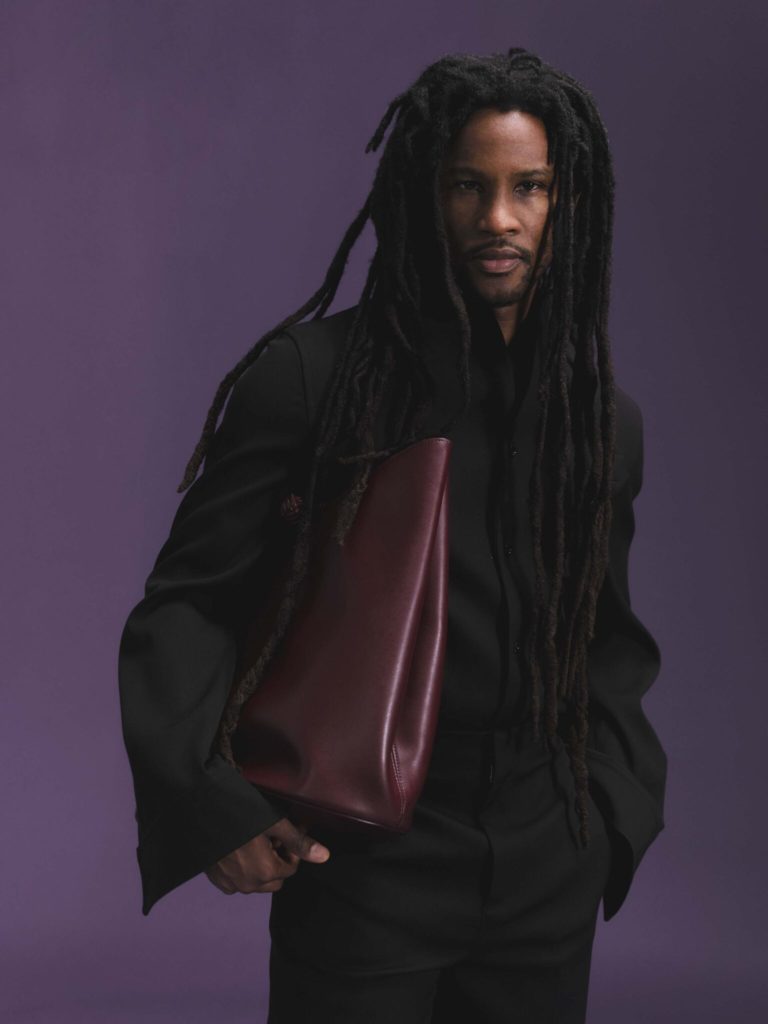
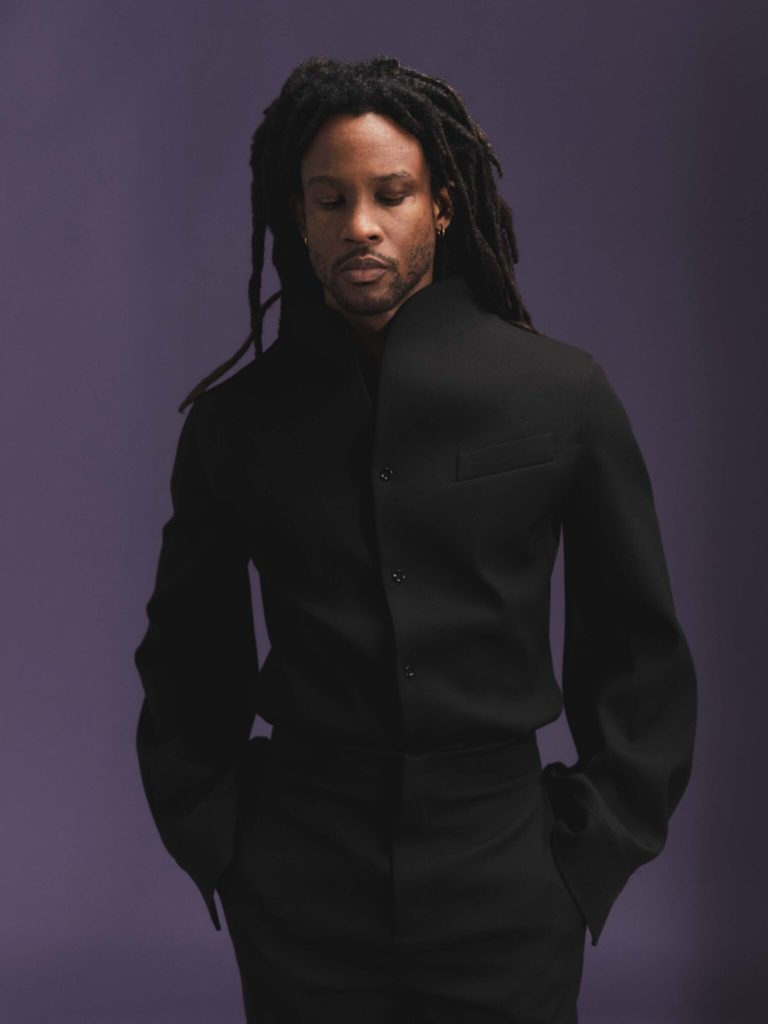
Against all odds, people are creating—and that’s far deeper in our DNA. We are storytellers. We’re creative people, artisans, nurturers. We come from very astute, important cultures. I just feel like a lot of those stories have not been projected to the world in the way I’d like to see them. I want to keep those stories not just arthouse-oriented, but authentic to who we are.
I just hope it lets people know that our stories are important. It’s crucial to find a way to tell those stories that doesn’t rely on stereotypes or outsiders coming to tell them for us.
What was working with Sope Dirisu like?
I saw Sope in a movie called His House—it’s on Netflix. It’s made by a director named Remi Weekes. It’s a really incredible film about the psychosis that happens through forced migration. I didn’t even know Sope was Nigerian when I saw the film—I just thought his performance was incredible.
I remember seeing Sope in a stage play years ago, and I just loved that play. Sope played Muhammad Ali. It used to be on my Instagram. It was one of the most electrifying theatre performances I had seen because it was all Black actors. They made a film out of it called One Night in Miami. When it came time to think of casting for our film, we were considering a lot of the guys we’ve seen in Nigerian movies.
I think Gangs of London had just started, and I remember sending his picture to my brother and saying, “I think this is our guy.” We needed someone who could embody a particular stature, strength and sensibility—just from the way they carry themselves—and Sope was the guy.
I can’t give him enough credit because I haven’t made a feature film before. My idea was that I’d tell him what to do, he’d act, and everything would go well. But while making the film, I took in a lot of information and spoke to people all the time. I didn’t get to spend as much time with the cast as I had anticipated. Sope was acting with leads who hadn’t acted before, but every time I looked, he was literally fathering those boys, giving them advice, encouraging them. He was just being a father to them, which is not what I had anticipated.
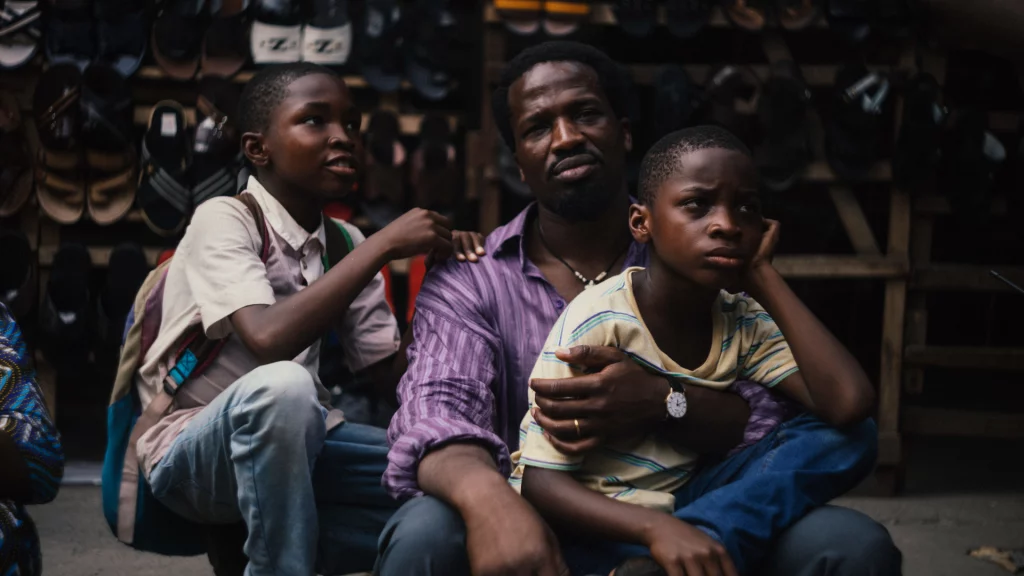
Is this a Nigerian film?
When you see it, you’ll be able to tell me if it’s a Nigerian film. I mean, it’s shot in Lagos and Ibadan. Half of the film is in English, the other half is in Pidgin and Yoruba. About 80% of the crew are Nigerians working in Nollywood or making music videos. I’m Nigerian. I grew up in Nigeria until I was 13. I have a Nigerian passport. My brother’s Show Dem Camp is in Nigeria. He works and lives there. He wrote the film.
If you ask me, “Is it a Nigerian film?” I’ll say unequivocally, it can’t be anything but a Nigerian film. But if you’re asking me if the finances determine where the film is from, then 100%, we have people who believe in me as a storyteller, as someone who can communicate emotion and feeling onto the screen. They invested in me to tell the stories I want to tell.
That’s just the makeup of the films we watch. Whether you’re watching The Boy Who Harnessed the Wind, Black Panther, or Mati Diop’s Atlantics, the way films are financed is international. And if Nigeria wants to consider itself part of an international community, that’s how some films might get financed. The process of filmmaking is collaborative, both in the actual act of filmmaking and in financing and development.
I’m sure there are better filmmakers than me in Chad, the Central African Republic, or Gabon who could probably tell better stories than I can. But if you’re not in a position to exploit the privileges that life has presented you with to make what you want to make, not many people might end up seeing that. So I’m really grateful to our collaborators.
Do you consider yourself a Nollywood filmmaker?
I do, quite honestly. Because Nollywood exists, that’s the delusion that gives me the right to believe I can be a filmmaker. If I’d never seen anybody from where I’m from make a film, it might have been harder to conceive the idea of making a film myself. 80% of our crew works in Nollywood on a daily basis.
We might not be considered the localised Nollywood, but I still feel like the arthouse film we’re making is similar to Eyimofe or Mami Wata (even though he doesn’t agree that he is a Nollywood filmmaker). We’re making arthouse Nollywood, and that doesn’t take away from what Nollywood is. I can’t borrow all the collaborators and then say, “This is not Nollywood.”
How does one make a Nigerian film that travels?
I can only talk about my own circumstances, which are unique to me. I have dual citizenship, so I have access to film funds and support, which, granted, might be different for others in Nigeria. Not everyone is on the same level playing field in film. But I think the foundation of everything comes from writing. If you’re a good writer, then there’s a chance to make a good short film, a good long-form, and a good TV show. Everyone needs to be ambitious in terms of their hopes and dreams. If you get through the quagmire of writing a good story and believe it can be shot, then you need to approach a production company like Fatherland. If they take a chance on you, you get the moment. Once you start getting money from people, you have to entertain their opinions. In some instances, maybe you just have to make that thing to be able to make the next thing. But it’s been really collaborative.
And I’ll say there needs to be a certain understanding of what film festivals can do. I was like, “I just want to put Lizard on YouTube.” But my producer was like, “We’re not going to do that. We’re going to go the film festival route because that will put you in front of other producers and companies interested in films for cinema purposes.” There’s content creation, and then there’s cinema. People need to understand where their work fits. If I just put it on YouTube, it’s considered content creation.
You also have to study your industry and know who does what. I’ll give you an example. Potboiler Productions made Lizard, and Potboiler made Half of a Yellow Sun. I only worked with Potboiler because they made Half of a Yellow Sun. I knew they had experience working with Nigerian filmmakers. Element Pictures hadn’t worked in Nigeria, but my producer, who made Lizard, Rachel Dargavel, had gone to Element, so it made sense to go with them. They had more resources, and they believed in her, and they really believed in what we were trying to do. She’s been to Nigeria.
I don’t want to bring Europeans who come to Nigeria with a sense of entitlement. I want someone who will work with us as equals and see our stories as just as important as any other story.
Does arthouse film have a future in Nigerian cinema?
I watched a Nigerian film at Berlinale two years ago, and the number of people who went to see that film was incredible. It was a fairly controversial topic in Nigeria—about two guys potentially falling in love. The film is called All the Colours of the World Are Between Black and White. I’d say that is super arthouse—very minimal, self-contained. I don’t know how they shot it in Nigeria, but the number of people who came to watch it was amazing.
I’d say that, just on that basis alone, arthouse cinema has a massive future in Nigeria. The difference between arthouse and commercial is that arthouse leans more into the art, trying to do something above your station. I’m not saying commercial films can’t do that, but commercial films tend to try to fit the needs of the status quo, whereas arthouse leans into the sentiment of what the artist is trying to convey. And in the Nigerian population, there are millions of artists.
How do you direct a film?
I want everybody to enjoy what they’re making and feel like they have the opportunity to voice their opinions, because I believe two heads are better than one. Also, as a man, I might not always see things from a woman’s point of view, so I really welcome everyone’s opinions to create a more rounded, fuller story. I’m very collaborative.
I try to take the burden of pressure off people by creating an environment that’s jovial and light-hearted. We’re not performing brain surgery; we’re telling stories, and I think we should enjoy the process. If people are enjoying what they’re making, it will show in the work. It’s all about being encouraging and finding middle ground.
There are things you want, but maybe the costume design hasn’t provided that yet, and you have to problem-solve. Being a director is about problem-solving. Some people find shouting effective; I don’t. I’ve never been in an environment where shouting brings out the best in people—it only creates fear.
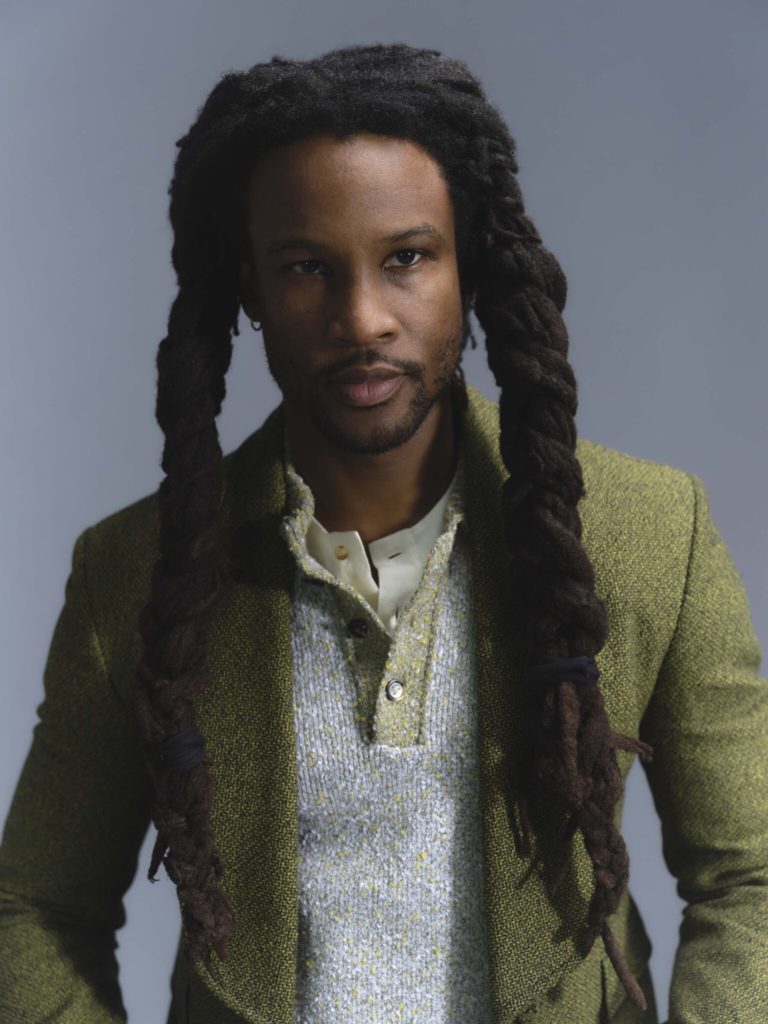
I believe I’m emotionally intelligent enough to understand when someone is struggling. I try to put my arm around them and figure out how to alleviate some of their feelings. That might come from my experience as an assistant. I’m very aware of my collaborators, their limitations, and what they’re dealing with. I still push them when I can, but I’m also realistic about what we’re trying to achieve.
There’s a saying that if you write a script and you manage to get 50% of what you’ve written on the screen, that’s a success. I’m just trying to get that percentage higher and higher by being a soft dad, a supportive presence, knowing when to push and when to berate people if necessary. It’s all about being attentive to the needs of everyone you’re collaborating with.
What do you mean by berate people?
Sometimes, you have to really push people. I’m not someone who shouts all the time, but sometimes you need people to focus. If you set a precedent where everything is too cordial or jovial, it might come back to bite you.
One day, we were shooting on the beach in Tarkwa Bay. It was a hard day to shoot because, obviously, there’s no shade at Tarkwa, and we were trying to shoot some scenes in the water, but the waves were crashing, and it was a stressful situation. I was feeling a bit disheartened, and the crew was enjoying themselves a little too much. I was like, “Guys, we’re not getting our stuff together. We think we’re just on a jolly at the beach here.” I was frustrated.
Afterwards, I spoke to the producers and said, “It’s not working.” And my producer just said, “Sometimes it’s not going to work. Let’s shoot the way you want to shoot, just to be safe.” By the end of the day, we got everything we needed, but I was still upset. The next day, I had to push everyone. I remember a scene where my cameraman, a poor Jamaican guy, was running on sand, and I could see how exhausted he was. But I said, “Let’s go again.” They were like, “We’ve got it,” but I was like, “No, let’s go again. We need to get the energy back up.”
I don’t want us to feel like we’re just having fun, forgetting that we’re here for a purpose. I don’t shout at anyone, but sometimes you have to have those tough conversations. That’s what I mean by berating people.
How do you create?
I consume a lot of content from the internet. When I’m reading the script, I can tell you exactly what I see. When I’m moodboarding for a scene or doing the treatment, I’m always collecting images—folders and folders of images. It’s like when I’m making a music video, I’ll just listen to the music and go through the folder, thinking, “This image, this image.” And then I’ll make an edit, another edit, and I’ll say, “This best fits the mood of what I’m trying to create.”
With features, it’s a bit different because I’m working with other people, so there’s a collaborative element to it. But it’s also just being observational. I’m very observational. We were doing a recce one day, looking at a location, and there was this guy playing with a puppet. And I said, “This guy has to be in the film. He just has to.” I couldn’t really tell you why, but we dressed him up, and he ended up being perfect for the scene.
I love nature and observing nature in Nigeria. There’s a scene in the film where they show logs being transported from the Lagoon to Makoko, and one day we just pulled up, and there were a lot of kids jumping into the water. I was like, “Guys, we need to film that.” That’s why I love Nigeria and Lagos—everything is cinematic for me.
I just like to watch. I’m just so curious. I just want to know. My camera doesn’t need to do somersaults to be creative. I just point at something. The fact that I’m showing you that thing means I’m giving you a sense of levity. It might not be an important shot, but it might just be something subconscious that the viewer picks up on. Music is also a crucial thing for me. I’m obsessed with manipulating people’s emotions through sound design and music. That’s like my kink—if I had one. I just want you to watch the film and feel it in your body.
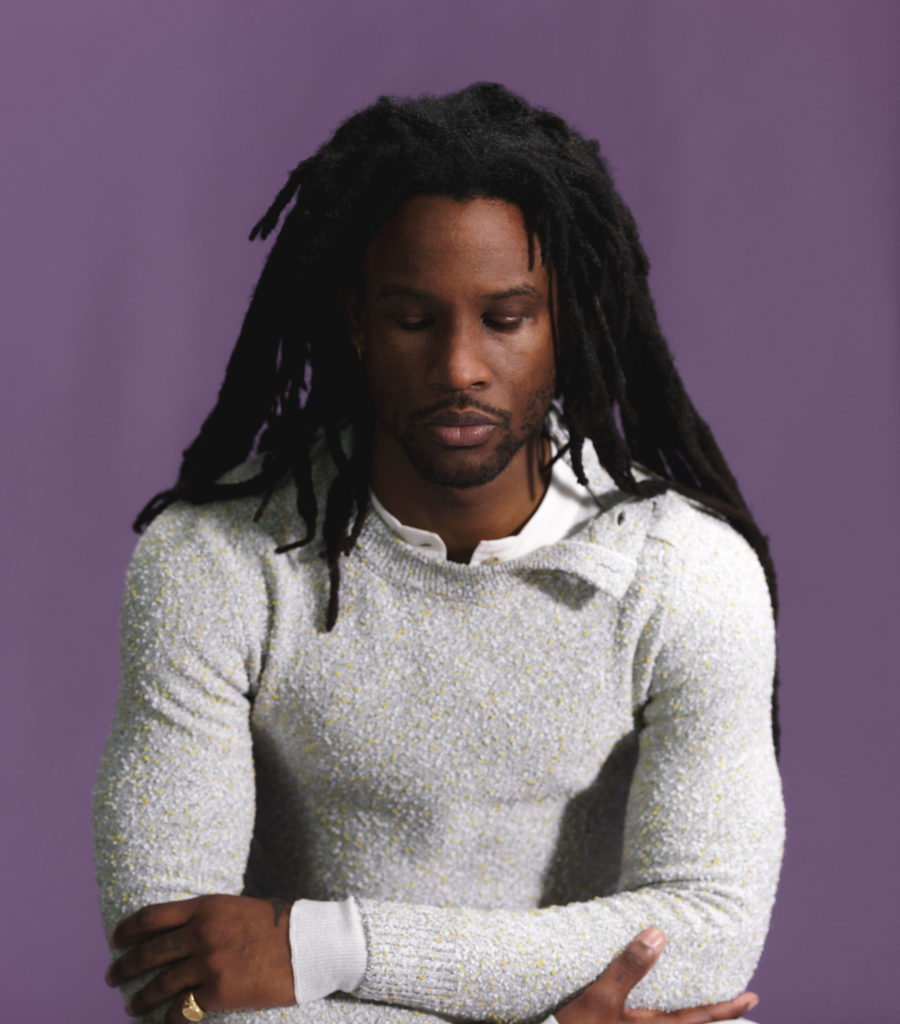
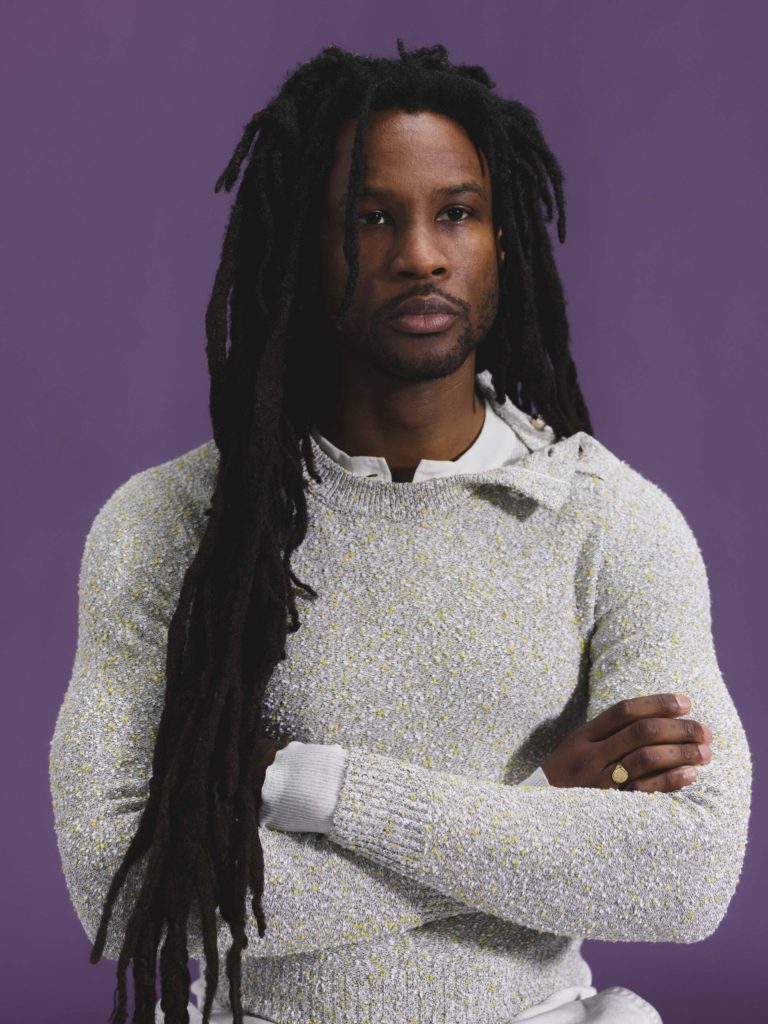
What’s your favourite Nollywood movie of all time?
Lionheart. It might sound like a cop-out, but I absolutely love Genevieve Nnaji. I love Lionheart. I also enjoy films like Osofia in London. I think Lionheart is special because, ultimately, it was a big moment for Nigerian cinema—it was going to be Nigeria’s entry into the Oscars. I watched it, and it’s a good story, not set in Lagos, dealing with family dynamics. If I had to pick, I’d say Lionheart. I’d love to collaborate with Genevieve one day.
Where do you see yourself in five years?
I just want to continue in my craft, doing what I love, and continue putting out work. Whatever is in God’s plan is where I’ll be in five years. I hope to be with my loved ones, collaborating with the people I’m collaborating with, and telling more Nigerian stories.

